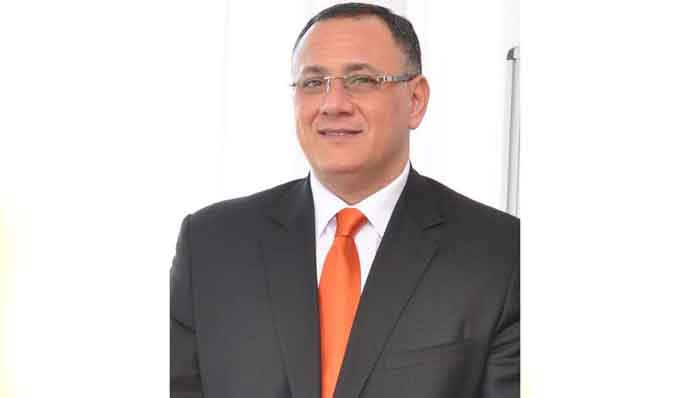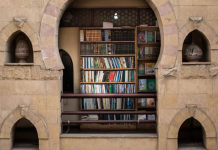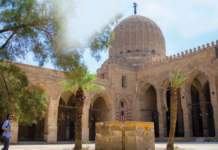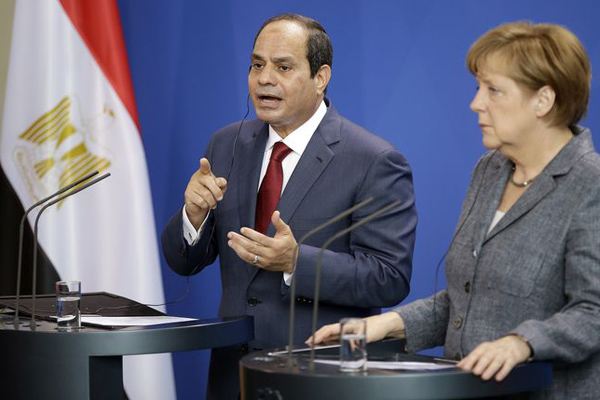“Starwood is a significant chain that enjoys a considerable amount of stability in its progress”
Islam Mahrous revealed problems that face tourism in Egypt from an administrator’s perspective. Issues like training labour force and growing national income from tourism, are certainly interrelated to reviving tourism as it was before 2011. We, The Middle East Observer team, had the privilege to sit and talk with such an influential figure in the Hotel sector like Sheraton Montazah’s Manager Mr Mahrous.
How did you first draw your career path to reach such a success and became Sheraton Montazah hotel manager, one of Starwood worldwide chain?
Joining the tourism business sector did not came by coincidence, I chose to join the faculty of tourism and hotels in Alexandria, and it was one of the top faculties in the 90s. I actually enjoyed studying in this faculty as it its atmosphere is really engaging and it actually helped me to get a good sense of the practical work environment beside the academic life. During my study period I was keen to strengthen my language skills; I took Italian and German language courses in order to master more languages as this was an edge to reinforce my qualification in order to exceed at the tourism business. I travelled abroad during the summer to receive the needed training in the tourism sector and get a real sense of the market international market.
My first job was in Intercontinental Hurghada in 1994, where I received intensive training as it is a worldwide chain that has a reputable name. I started from the bottom of the pyramid to the top, as they say; I started as a receptionist in Intercontinental hotel and I actually gained a lot of experience and soon I got promoted to a shift leader then assistant manager.
I was also eager to gain international experience, I traveled to Dubai and worked in Sofitel Citi Centre; it was actually the first big project of a shopping mall that is linked to a hotel. Afterwards I joined Sheraton International chain in Dubai as a night manager. I also worked in Libya in one of the very significant hotel projects there. I also diversified my work experience in Egypt; I worked in Sheraton Suma bay and Sheraton Hurghada and finally I worked in Sheraton Montazah Alexandria as hotel Manager.
Starwoods is one of the most recognised hotels and resorts chains worldwide, in your opinion, what makes working with this chain an exceptional experience, comparing other hotel chains?
Speaking of my personal experience, I would say that my accumulated knowledge that I have gained, I acquired it from working in Starwood chain; they offer competitive training programmes to the employees. It is a significant chain that enjoys a considerable amount of stability in its progress since it was established in 1930 in the United States. They regularly offer new trends not only for the training programme, but also for the projects they establish, like the six sigma project, which is an internationally recognised approach/project at Starwood Hotels and Resorts that helps associates develop innovative, customer-focused solutions and quickly disseminate those innovations across the entire organisation. It is unique to the hospitality industry. It provides the framework and tools we need to create and maintain superior standards at all properties while dramatically improving the bottom line.
I would say that the wide range of opportunities that the Starwood chain offers, provides a great deal of professional and personnel development to its employees.
What are the toughest challenges you have faced in your career path of hotel and tourism business?
I have graduated in 1993 and during the early 90s the tourism sector did witness enormous ups and down, starting from the economic crises in 1992, followed by terrorist attacks in Sinai, then Luxor attacks in 1997; in 2005 Dahab and Sharm El Sheik witnessed other terrorist attacks, and finally the Egyptian revolution in 2011 which did enormously affect the tourism sector in Egypt, due to major security issues.
For sure drawing a career path within the tourism sector, starting the 90s, was not easy task; the path was not paved and it did have many obstacles. The main disadvantage of this lack of stability is the recurrent economic recoveries following each crisis and these recoveries unfortunately do not give much chance to the economy to expand and flourish; on the contrary the economy would actually shrink. During these times of instability we just try to maintain the main operations going on, which makes exploring new opportunities harder. I would say that this “surviving strategy” is the main challenge that the tourism sector is facing in Egypt and it is the main obstacle I have faced in my career.
Stay tuned to the second part of the interview, with Islam Mahrous.















